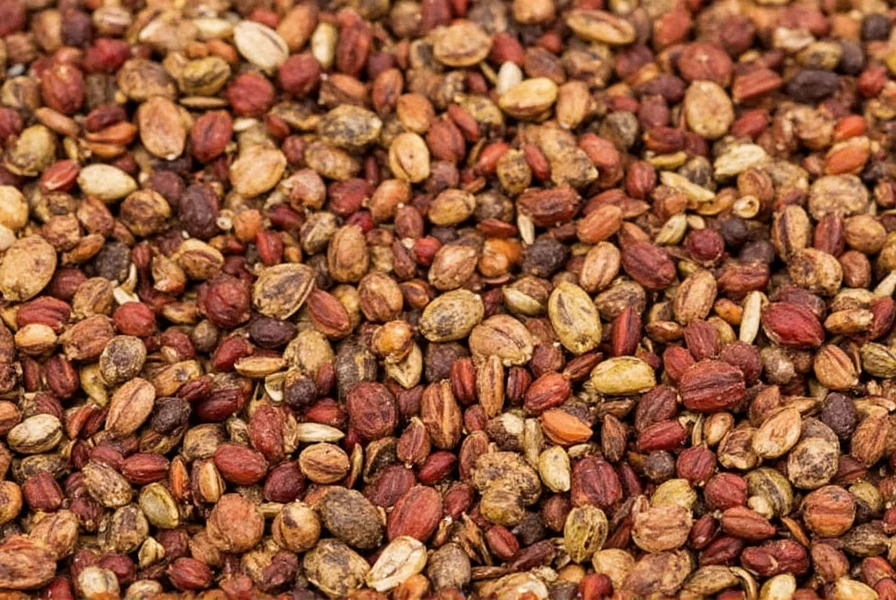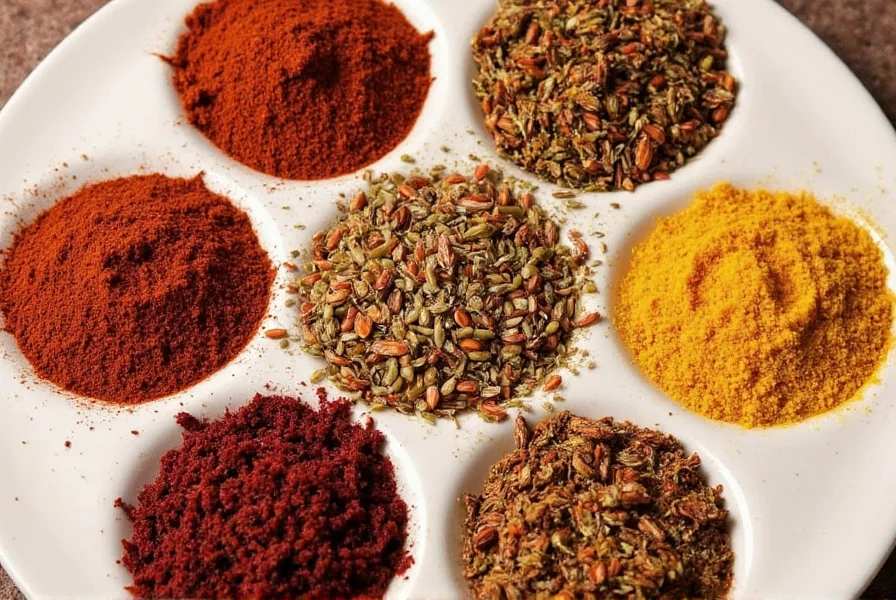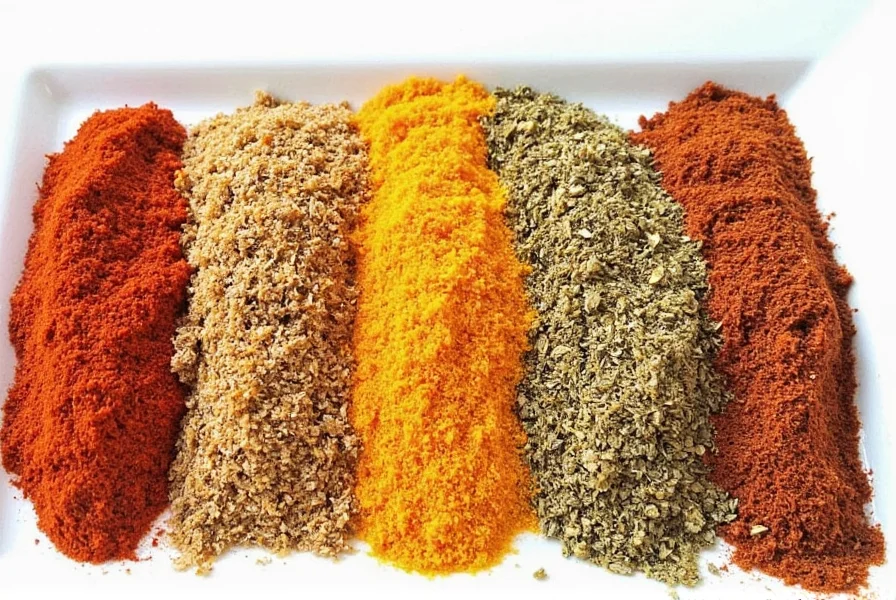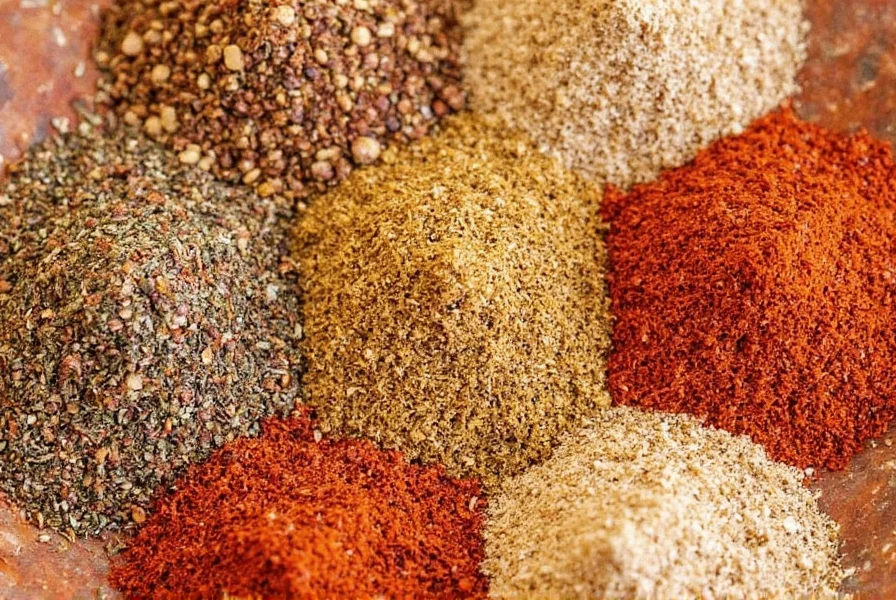Arabic seasoning is a traditional spice blend used across Middle Eastern cuisine, typically composed of cumin, coriander, sumac, paprika, cinnamon, and other spices to create a warm, earthy, and tangy flavor profile. This guide covers everything you need to know about Arabic seasoning, including its ingredients, uses, recipes, and storage tips.
Table of Contents
- What Exactly Is Arabic Seasoning?
- The Flavor Profile That Sets It Apart
- The 7 Essential Spices in Arabic Seasoning
- Pro Tips for Using Arabic Seasoning Like a Pro Chef
- Buying Guide: Choosing the Best Arabic Seasoning Blends
- Delicious Recipes to Try at Home
- How to Store Arabic Seasoning for Maximum Flavor
- Frequently Asked Questions
- Final Thoughts
What Exactly Is Arabic Seasoning?
When we talk about Arabic seasoning, we’re referring to a wide range of spice blends used across Middle Eastern cuisine. These mixes can vary by region, family tradition, and even personal preference — but they all share one thing: depth of flavor that brings dishes to life.
From Lebanon to Saudi Arabia, each country has its own signature style. Some blends lean heavily on earthy notes, while others emphasize warmth or brightness. Let’s dive into what makes these seasonings so special.
The Flavor Profile That Sets It Apart
Arabic seasoning isn’t just about heat — it’s a complex dance of savory, tangy, sweet, and smoky elements. Think of it like a symphony orchestra where each spice plays its part:
- Earthy – thanks to cumin and coriander
- Warm – provided by cinnamon and nutmeg
- Tangy – courtesy of sumac
- Floral – from rose petals or cardamom
A Comparison of Arabic Seasoning vs. Other Spice Blends
| Spice Blend | Common Ingredients | Flavor Notes | Best For |
|---|---|---|---|
| Arabic Seasoning | Cumin, coriander, sumac, turmeric, paprika, cinnamon | Earthy, warm, slightly tangy | Grilled meats, rice dishes, stews |
| Garam Masala | Cardamom, cloves, black pepper, cinnamon | Floral, spicy, sweet | Indian curries, lentils, roasted veggies |
| Dubai Mix | Black lime, thyme, sesame seeds, sumac | Savory, tart, nutty | Kabsa, machboos, flatbreads |

The 7 Essential Spices in Arabic Seasoning
Every home cook should have these foundational spices in their pantry. They form the backbone of most Arabic seasoning blends:
- Cumin: The workhorse of Middle Eastern flavor. Adds earthiness and warmth.
- Coriander: Brightens up heavier meat dishes with a citrusy note.
- Sumac: A natural sour punch without the need for lemon juice.
- Paprika: Adds color and subtle sweetness.
- Cinnamon: Brings a touch of sweetness and warmth to the blend.
- Nutmeg: Used sparingly for depth and richness.
- Rose Petals (Dried): Offers floral complexity to many dessert-style rubs.
Pro Tips for Using Arabic Seasoning Like a Pro Chef
Want your dishes to taste like they came straight from a souk in Marrakech or Jeddah? Here are some pro-level tricks:
- Toasting the spices: Lightly toast ground spices in a dry pan before adding them to dishes for deeper flavor.
- Bloom in oil: Sauté spices in olive oil at the start of cooking to unlock their aromatics.
- Balance is key: Don’t overpower your dish — adjust ratios based on the protein or vegetable you’re using.
- Use with yogurt sauces: Combine Arabic seasoning with Greek yogurt, garlic, and lemon for an instant dip or marinade.
- Pair with citrus: A squeeze of lemon juice brightens the warm spices beautifully.
When to Use Which Type of Arabic Seasoning
| Type | Flavor Focus | Ideal Use | Recommended Pairing |
|---|---|---|---|
| Standard Arabic Rub | Earthy & warm | Chicken, lamb, grilled meats | Rice, flatbread, pickles |
| Lebanese Za’atar | Herby & tangy | Mixed greens, labneh, bread dips | Lemon tahini dressing |
| Qatari Kabsa Mix | Floral & savory | Rice dishes, seafood, lamb | Mango salsa, yogurt raita |
Buying Guide: Choosing the Best Arabic Seasoning Blends
Ready to bring the magic of the Middle East to your kitchen? Here’s how to choose the best Arabic seasoning for your needs:
Top Arabic Seasoning Products Reviewed
| Product | Key Features | Pros | Cons | Best For |
|---|---|---|---|---|
| OliveNation Arabic BBQ Rub | Pre-mixed grill rub with cumin, coriander, paprika | Great balance, ready-to-use, affordable | No customization | Weeknight grilling, burgers, kebabs |
| Zayna All-Natural Shawarma Seasoning | Classic Lebanese blend with garlic, salt, turmeric | Authentic taste, no MSG, vegan | May be too salty for some | Homemade shawarma, sandwiches |
| Spice Hunter Dubai Mix | Thyme, sumac, black lime blend | Unique tartness, versatile | Harder to find in stores | Rice dishes, flatbreads, salads |
DIY Arabic Seasoning Recipe (Customizable!) 🎯
Mix your own at home with this easy base recipe:
- 2 tbsp ground cumin
- 1 tbsp ground coriander
- 1 tsp paprika
- 1 tsp sumac
- ½ tsp cinnamon
- ¼ tsp nutmeg
Add a pinch of dried rose petals for floral complexity or swap in turmeric for color and health benefits.
Delicious Recipes to Try at Home
Ready to get cooking? Here are a few fan-favorite recipes you can try using Arabic seasoning:
- Arabic-Seasoned Chicken Shawarma: Marinate chicken thighs in a yogurt and spice mixture, then roast or pan-sear until golden and crispy.
- Spiced Chickpea Stew: Simmer chickpeas in tomato sauce with garlic, ginger, and Arabic seasoning for a hearty vegetarian dish.
- Grilled Eggplant with Sumac and Yogurt: Char eggplant slices, drizzle with yogurt mixed with sumac, and finish with fresh mint.
- Arabic-Spiced Rice Pilaf: Toast basmati rice in butter, add Arabic seasoning, and simmer with chicken stock for fragrant grains.

How to Store Arabic Seasoning for Maximum Flavor
Spices lose potency over time, especially when exposed to light, air, and moisture. Follow these storage tips to keep your Arabic seasoning tasting fresh:
- Use airtight containers: Mason jars or spice tins with tight lids help preserve flavor.
- Keep in a cool, dark place: Store away from the stove or sunlight to avoid oxidation.
- Label everything: Include the date and contents for easy reference.
- Make small batches: If you don’t cook with Arabic seasoning often, prepare smaller quantities to use within 6 months.

Frequently Asked Questions About Arabic Seasoning
What is Arabic seasoning made of?
Traditional Arabic seasoning typically contains cumin, coriander, sumac, paprika, cinnamon, and nutmeg. Some regional variations may include turmeric, cardamom, or dried rose petals. The exact blend varies by country and family tradition, but these core spices create the characteristic earthy, warm, and slightly tangy flavor profile.
Is Arabic seasoning the same as za'atar?
No, they're different blends. Za'atar is a specific herb-based spice mix containing thyme, oregano, sumac, and sesame seeds, typically used as a dip or sprinkle. Arabic seasoning refers to a broader category of spice blends used for meats, rice, and stews, with more emphasis on warm spices like cumin and cinnamon.
What dishes can I use Arabic seasoning in?
Arabic seasoning works wonderfully in grilled meats (especially chicken and lamb), rice dishes like kabsa, vegetable stews, roasted vegetables, hummus, and even some bread doughs. It's incredibly versatile - try it in scrambled eggs or mixed with olive oil as a dip for bread.
How long does homemade Arabic seasoning last?
When stored properly in an airtight container away from light and heat, homemade Arabic seasoning maintains peak flavor for 6-8 months. After that, it won't spoil but will gradually lose potency. For best results, make small batches and refresh your supply regularly.
Can I substitute Arabic seasoning if I don't have it?
While not identical, you can create a passable substitute with 2 parts cumin, 1 part coriander, ½ part paprika, and a pinch of cinnamon. For the tangy element, add a bit of sumac or lemon zest. For a quick fix, use allspice or baharat as alternatives, though the flavor profile will differ.
Is Arabic seasoning spicy or hot?
Traditional Arabic seasoning isn't typically "spicy" in the heat sense. It's warm and complex rather than hot. If you prefer some heat, many blends include cayenne or increase the paprika, but authentic versions focus on flavor complexity rather than heat.
Where can I buy authentic Arabic seasoning?
You'll find authentic blends at Middle Eastern grocery stores, specialty spice shops, or reputable online retailers. Look for products with simple ingredient lists and no fillers. Brands like Zayna, OliveNation, and Spice Hunter offer quality options, but checking local markets often yields the freshest blends.
Final Thoughts
Arabic seasoning is more than just a spice blend — it’s a celebration of culture, history, and flavor. Whether you're new to Middle Eastern cuisine or a seasoned pro, there's always something new to discover in the world of Arabic spices.
So go ahead — experiment with different combinations, play with textures, and don’t be afraid to get creative. Your next culinary adventure could be as simple as reaching for the right jar of Arabic seasoning.











 浙公网安备
33010002000092号
浙公网安备
33010002000092号 浙B2-20120091-4
浙B2-20120091-4